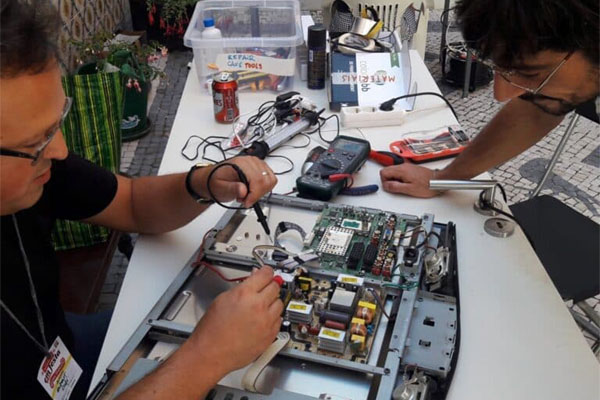
@CEP
Repair Cafes are public events where people can repair objects together. Visitors bring their broken items from home to repair with the help of volunteers with skills in all kinds of fields. At a Repair Café there are tools and materials to repair various items, such as clothes, furniture, electrical appliances, bicycles, crockery, appliances and toys. This not only helps prevent waste, but also creates a sense of community among the participants. Furthermore, Repair Cafés provide a collaborative learning opportunity for everyone! There are over 2,500 Repair Cafés worldwide, organized by various types of local organizations, often run by volunteers.
Why?
Currently, enormous amounts of objects are discarded annually, from electronic devices to clothes and other everyday products. For example, research from the UN shows that the world generated 53.6 million tonnes of electronic waste in 2019 and the European Commission estimates that, on average, each person throws away 11kg of textiles every year in Europe.
In fact, most products and equipment are no longer made to last: this is called planned obsolescence - when the manufacturers deliberately create products that will malfunction or be out of date in a short period of time. This generates vast amounts of waste, as people no longer have the skills to repair objects by themselves, which causes pollution (e.g. contamination of soils, CO2 emissions) and waste of raw materials, as well as of water and energy.
How youngsters can get involved
Skills and Competences
By joining a Repair Café, young people can develop several competences:
Hard Skills
Repairing objects can be complicated and may require technical training and specialised courses, but sometimes just experimenting and practice can already make things work. There are various sources available online that provide repair tips and tricks, such as iFixit.
Soft skills
How youngsters can get involved